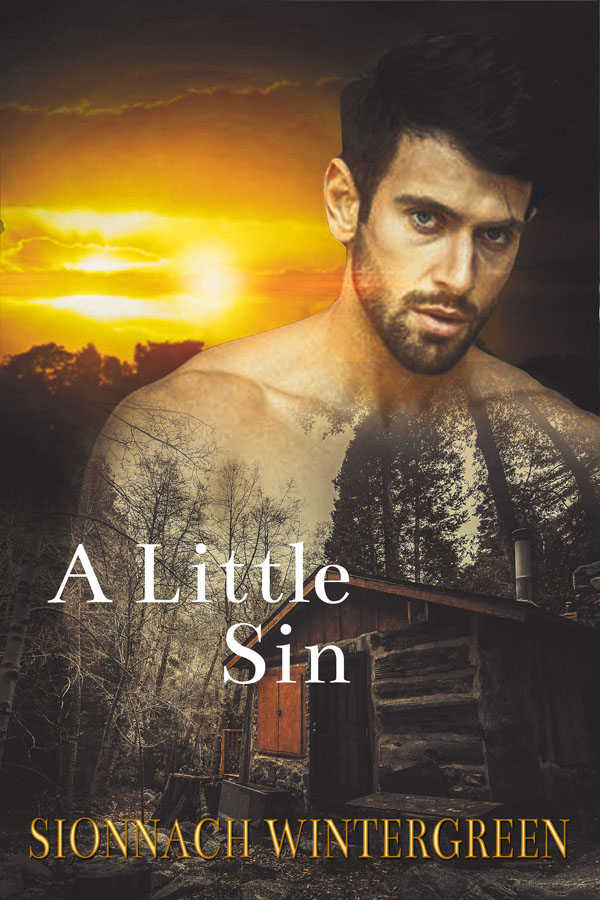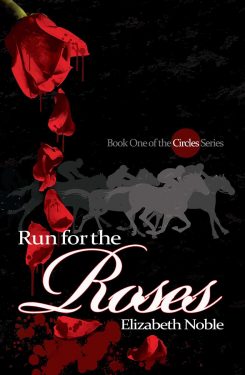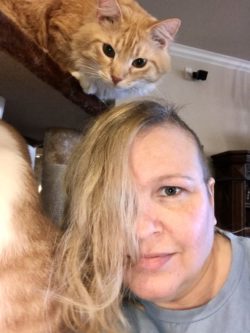by

Sheriff Avery O’Rourke has tried to obey his strict Christian faith and lead a “normal” life. In 1923 in a rural East Texas town, “normal” means heterosexual. A cholera outbreak has made Avery a young widower, so he is married to his job. When a murder investigation forces him to confront his truth, will he finally be able to accept being gay?
Veterinarian Garland Sands has returned from Europe to take over his father’s practice. Struggling with shellshock (PTSD) and heartbroken by the suicide of his French lover, he resigns himself to a quiet, solitary life as a country vet. But the murder of the town doctor brings the sheriff to Garland’s doorstep looking for help with the investigation. Seeing Avery awakens dormant feelings. Can he love a man who hates what he is?
This isn’t the lavish 1920s of The Great Gatsby. This is the flip side of that coin—rural East Texas. No electricity. No indoor plumbing. No flappers. In 1923, the timber barons have left and racism, homophobia, and sexism thrive.
A Little Sin is a realistic mystery with unlikely heroes and a timeless romance between lovers caught in a world where their love is forbidden. This book contains steamy sex scenes and is intended for adults only.
- 8 To Be Read lists
- 1 Read list
Cover Artists:
Genres:
Pairings: M-M
Heat Level: 5
Romantic Content: 4
Ending: Click here to reveal
Character Identities: Gay
Protagonist 1 Age: 18-25
Protagonist 2 Age: 18-25
Tropes: Coming Out / Closeted, Cultural Differences, Forbidden Love, Healing Power of Sex, Hurt / Comfort, Most Mindblowing Sex Ever, Opposites Attract, Passing as Straight, True Love
Word Count: 37,000
Setting: East Texas, United States
Languages Available: English
Chapter One
Timberland, Texas
Wednesday, August 1, 1923
Sheriff Avery O’Rourke had seen men strung up before. He had watched a man hang on the gallows in the jail the previous summer. And he had cut down the bodies of souls lynched by the Ku Klux Klan—a fearsome and growing problem of late. This—finding a dead man hanging from a magnolia tree—reminded him of a lynching. This man, however, was white and the town doctor.
He examined the body, the rope cut by his own hand, as it lay stretched out on the dead magnolia leaves. Who would want to kill Doc Watkins? Dried blood was smeared all over his face. It had dripped down his chin onto his shirt and vest.
READ MOREAvery scratched his dark beard. “Who did this to you, Doc?” Normally the doctor, himself, would have helped answer that question—or at least cleared up a few of the questions around it. Avery stood up and sighed. Texas didn’t have coroners, and rural Timberland, despite being the county seat, didn’t have a pathologist. Now, it didn’t even have a medical doctor. Where would he find another doctor? He stared into the thick East Texas forest, dominated by towering pines, as if it might reveal the answer to him in the swirling morning mist.
He hefted the doctor’s body into the wagon, then climbed up in the driver’s seat. “C’mon, Bluebird.” The blue roan drove as well as he rode and tossed up his head and tail, with a prance in his step, as he pulled the wagon up the hill. Avery had a Model T donated to the sheriff’s office by Rufus Larson, owner of the timber mill. The car was good for driving around the town square or getting stuck in the mud. He rode Bluebird most of the time and hitched him to a wagon when he needed to move anything. As far as Avery was concerned, horses were one of God’s greatest creations. They were like people. Like people…. He had made up his mind as he clucked the horse into a trot. If he couldn’t get a doctor to do the examination, he would get the next best thing.
***
Sands’ Farm
Avery stood on the doorstep of an old white farmhouse on top of one of the land’s many rolling hills, nestled amid a stand of longleaf pines. A barn with a small, cleared pasture stood beside it. The house’s Victorian flourishes suggested it must have been built during the last century.
A slim black woman in her thirties answered the door. She smoothed her hands down her gingham housedress when she recognized him. Or maybe it was just the uniform she recognized—his khaki cotton twill button down shirt and pants and the silver star pinned to his chest. A nervous smile played on her lips. Avery recognized her as old Sam Sand’s housekeeper, but she wore no apron.
“How can I help you, Sheriff O’Rourke?”
“I’m looking for—didn’t old Sam’s son take over his practice a couple of month’s ago?”
“Yes, he did. Garland—that’s Mister Sam’s son—he’s the vet now.” She peered around the door at the wagon. “Did your horse come up lame?”
“No, ma’m.” He didn’t want to frighten her with talk of the murder. Women were fragile things. He scratched his short, neatly trimmed beard. “Uh, what is your name?”
“Lucinda. Lucinda Gattis. I’m…I’m Garland’s secretary now.” She grinned. “He likes to keep his own house.”
Avery noticed that she referred to Garland as simply ‘Garland’ instead of Dr. Sands or Mister Garland. The man obviously had some new-fangled ideas. “A secretary might be exactly what I need,” said Avery. “I have to find Garland. I’m hoping he can help me out with a case I’m investigating.”
Lucinda nodded. “He’s over at the Flanders’ delivering a hung up calf.” She made a little twirling motion with her hand. “He turns them around.” She beamed.
Avery had met her several times before and had never seen her smile like that. Obviously, Garland had made quite the impression. “I hope he can turn my case around. Thank you for your help, Mrs. Gattis.” He tipped his Stetson. “Have a pleasant day.”
***
Flander’s Farm
“Here he is,” said Mrs. Flanders. “I’m feeding him some of my blackberry cobbler.” A young man in his twenties sat at a round kitchen table with a big grin on his boyish face. Avery, at twenty-three, couldn’t have been any older than him, but he felt older by several decades. Garland, dressed in grubby blue denim overalls minus his work shirt, a hunk of blond hair flopping loose on one side of his chiseled face, stuffing his gob with cobbler, reminded him of an overgrown child. Avery had done a man’s work from the time he could ride a horse; he wasn’t overly fond of children and even less so of grown men who persisted in acting like them.
Mrs. Flanders pulled out a seat. “Sit down, Sheriff. I’ll get you some cobbler, too.”
“No, thank you, ma’m. I don’t have the time.”
“This moment is all we have,” said Garland amiably. His golden-tanned, shirtless arms bulged with sleek muscles. He was like a thoroughbred colt—strong features, lean ripples of muscles, and a head full of nonsense.
“I need to speak with you about something.” Avery, holding his hat, tapped it against his other hand. He didn’t want to talk about the possibility of murder in front of Mrs. Flanders.
“Sorry, I don’t know where any stills are.” Merriment danced in Garland’s gray eyes.
Avery didn’t care for mischief—or mischief makers. “I do other things around here.”
“Oh, well. Of course, you do.” He took a huge swig of milk. Mrs. Flanders hovered over him, pouring him some more as soon as he put down his glass.
Avery wondered how she couldn’t see it. A good Christian woman like Mrs. Flanders. She was all agog, fussing over this miscreant when she should have been shunning him. Garland didn’t lisp like that Yankee fairy from his unit in the war. But there was something about the way he spoke, something in his manner. Even as he chugged milk, there was something refined about him, something almost elegant. Avery knew Garland was homosexual. He could just tell. Why couldn’t Mrs. Flanders?
Garland licked his milk mustache from his upper lip with a big pink tongue. Avery’s dick twitched awake. Avery took a breath and willed it down. He hadn’t been with another man since the war…. “If I could see you outside, Mr. Sands?”
“Of course, Sheriff.” Garland stood, surprising Avery a little with his height, thanked Mrs. Flanders, and followed Avery out the screen door. Avery led him up the drive to the wagon. Garland stopped to check Bluebird, something Avery couldn’t help but note with satisfaction. Avery left him feeling over the horse and went to the back of the wagon. Flies buzzed over the tarp covering the body.
“I didn’t ask you here for the horse, Garland. I want to know what you make of this body.”
Garland perked up. For a second, Avery wondered if he would spew cobbler everywhere, but Garland jumped up in the wagon. “Is this Doc Watkins?”
“It is. And that’s why I’m here. Normally, I would take a body that looked like it had met with suspicious circumstances to him.”
Garland pushed the man’s eyelids down and breathed, “Lord, shine Your grace upon this man’s soul.”
Avery reflexively said, “Amen.” Garland joined him. They sat in the wagon with the doctor’s body between them, united for a moment. Avery cleared his throat. “I cut him down this morning. He was hanged from a magnolia tree about two miles from his homestead. I don’t know what happened to his face. Aside from the blood, he doesn’t look much worse for wear.”
“Hmm. Maybe he bit his tongue?” Garland pried open the man’s mouth and revealed the maimed appendage. “Damn. They sliced his tongue to the root.” He looked at Avery. “Is there somewhere I can give him a real examination?”
Avery shrugged. “Your house?”
“My barn. Take him over there. Let me gather my things and I’ll meet you there.”
***
Sands’ Farm
Avery waited in the entrance of the barn while Garland unsaddled and led his paint horse to the paddock adjacent to the barn’s right side where there were several stalls. He admired Garland’s barn. It was nearly as neat as a new wife’s house. Shelves along one wall held bottles, jars, boxes, and lanterns. The opposite wall had pegs for tack, and the back was full of sweet-smelling hay bales. Sunlight streamed in through the open double doors, providing light for the examination.
Garland pulled a table from along one wall out into the center of the room. He helped Avery carry the body from the wagon to the table. A large, fuzzy calico cat watched them. It jumped up on the table with the dead man.
“Move along, Katydid.” Garland picked up the cat and set her down on the floor.
“She could be your nurse.”
Garland grunted as he unbuttoned Doc Watkin’s vest.
“A cat nurse and a colored secretary.”
Garland, stooped over the body, looked up at him slowly, a hint of rancor in his gray eyes. “Mrs. Gattis is doing a fine job.”
“She is. She directed me to you. That’s how I found you.”
Garland bit one side of his lower lip. He had beautiful, sensuous lips. Avery tried to push that to the back of his mind. He watched Garland undress the body. It was just a body now, just a shell like the delicate brown cicada shells he used to collect as a boy. Their backs were open where the winged bug—the cicada, or katydid as they called them—had crawled out and flown away. This was the same thing—a shell. He would try to get any clues from the body and release it to the widow for burial as soon as possible. His stomach clenched. The widow. He didn’t relish telling Mrs. Watkins that her husband was dead.
He still remembered getting the letter that Ester May had died. Cholera. She had sickened while he was in a trench in another land watching young men die around him. They had been friends more than anything. He had married her to keep anyone from knowing how he truly felt. But she had adored him. He pushed the feelings of guilt her death always brought away. Some part of him believed that she wouldn’t have died if he had been a better husband.
Feeling vague and distant, he watched Garland yank down the doctor’s trousers. Garland grunted. “Something fell out of his ass.”
“Yeah, men often drop a load when they die.”
“No, this is something else.” Garland fished something out of the doctor’s pants and held it up. “Sweet Jesus. There’s his tongue.”
“You mean they cut off his tongue and put it in his pants?”
“I think they stuffed it where the sun doesn’t shine.”
“They shoved his tongue up his ass.” Avery shook his head in disbelief. “Why in tarnation would anyone do that? What were they trying to say? The doc was no fairy.” Without meaning to, he locked eyes with Garland as he said it.
Garland’s gray eyes were cool as gun metal and icy pale. “And you would know,” he said quietly, pulling the words from his body like a blade.
Avery couldn’t say anything for a few seconds. A chill licked up his spine. “I would.”
A faint smile played on Garland’s lips. “I know.” He breathed deeply. “Your secret’s safe with me.”
The air in the barn seemed to have thickened along with Avery’s prick. His thoughts struggled as if caught on fly paper. They were standing over a dead man—a man he knew—and all he could think of at that moment was how Garland’s muscular body would feel pressed up against his.
Garland held the tongue up suddenly. “Maybe that’s it! Maybe he had a secret someone didn’t want told—or maybe he told it?” He set the tongue down beside its owner’s head.
Avery scratched his short beard. “I don’t know….”
“He’s just starting to go into full rigor,” said Garland. He wiped his hands off on the tarp, then washed them with some acrid-smelling antiseptic from a nearby bench. The odor made Avery’s nose twitch. Garland pulled a cigarette case from the bib of his overalls and frowned at the naked man on the table. “That means he must have died four to six hours ago.” He struck a match and lit his cigarette.
Avery consulted his pocket watch. “It’s half-past eight now.”
“So he met his fate sometime in the wee hours of the morning.”
Avery lit a cigarette of his own. “That’s when the Klan likes to lynch people—under cover of darkness. Yellow-bellied bastards.”
Garland’s eyes widened. “You think this was the Klan?”
Avery shrugged. “I don’t know what this is right now. I’ve never seen anything like it.”
“Whatever it is, he didn’t do this to himself.”
COLLAPSE
Author’s Note
Timberland is an amalgam of several East Texas cities. The county of Wakeforest and the cities of Timberland and Amberton exist only in this book. 1923 was a rough time in East Texas. There was no indoor plumbing and no electricity. It was a time of Prohibition, intolerant religion, and the Ku Klux Klan.
Because I was trying to stay true to the time period, you will find words like ‘colored,’ ‘negro,’ ‘fairy,’ and ‘whore,’ in this book. I don’t like these words, but I have used them to try to capture the flavor of the time. I shied away from using certain, even uglier, words.
So, why Garland? That’s actually the name of one of my ancestors, and I’ve always wanted to use it. My son is lucky he wasn’t named Garland! My Garland is my own invention.
Why 1923—and why East Texas? The idea for this book first came to me as a story about a sheriff and a veterinarian. I pulled 1923 out of the air and ran with it. I chose East Texas because the grandparents who primarily raised me grew up there in the thirties. I loved their folksy idioms and stories about their childhoods. When I went with them to visit relatives there, I fell in love with its lush pastures, rolling hills, and beautiful forests. But nighttime frightened me—the crickets roared, and the forests seemed haunted. When I decided to write a mystery romance set in the past, East Texas called to me.
I researched this time period and this little corner of the world quite a bit while writing this book. Some of what I found surprised and saddened me. I tried to stay true to the time period. The characters are flawed, and they aren’t modern men, but they grow as the story progresses.
This is an m/m romance with a mystery and a western flavor, but, ultimately, a story where two gay men and a black woman solve crimes in 1920’s East Texas is my fantasy. I hope this is a fun book, and I hope you enjoy reading it!
Sionnach






